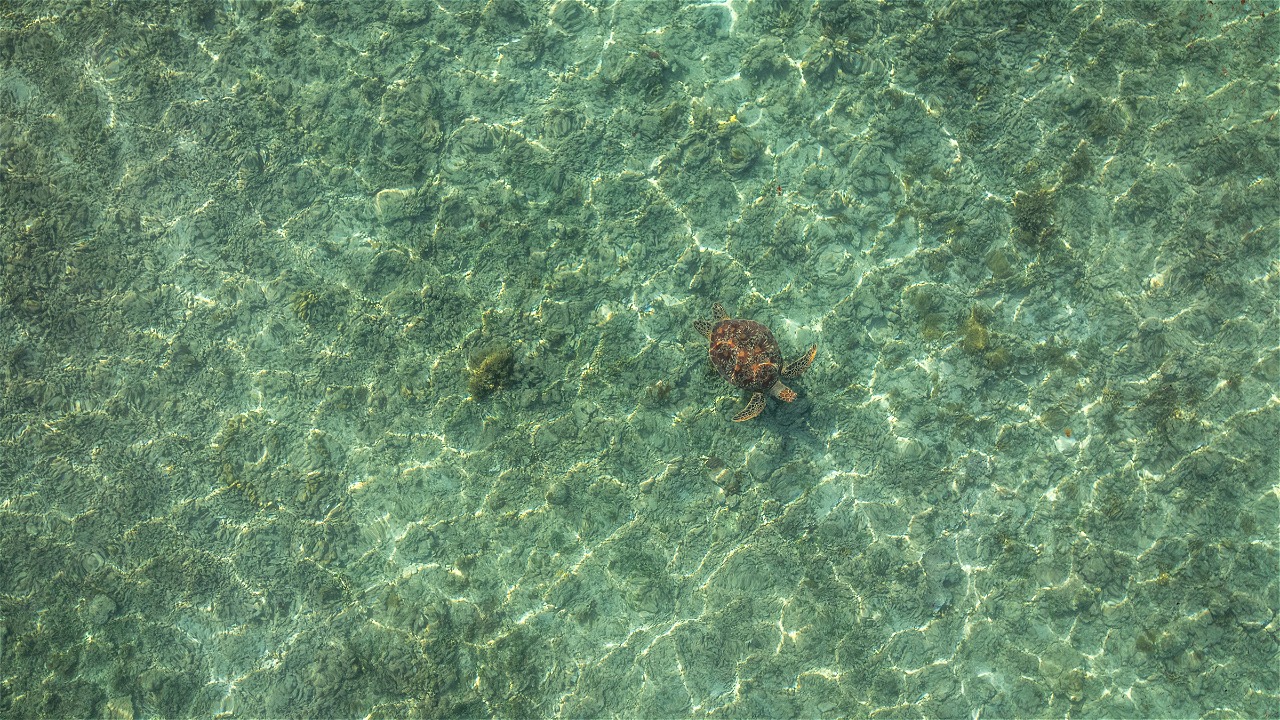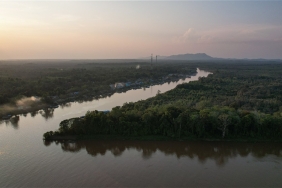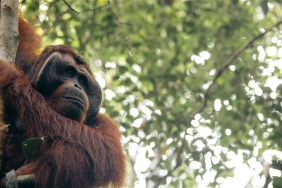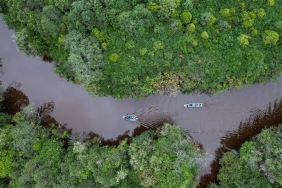ENHANCING COMMUNITY ROLES IN CONSERVATION IN COASTAL AREAS OF WEST KALIMANTAN
PALOH - The existence of protected Plant and Wildlife (TSL) populations, especially in coastal areas, has decreased significantly. This is due to high illegal hunting and trade activities, threats to habitat caused by land use change, and accidental capture (bycatch) by gill nets.
The high rate of incidental catch of dolphins and sea turtles by fishermen in Mempawah and Sambas districts has resulted in high mortality rates. From the results of the initial study of bycatch conducted by WWF Indonesia in 2014 - 2015, it shows that at least in one year the fishing activities of fishermen in the waters of Paloh, Sambas Regency, are estimated to have an interaction of turtle catches of 885 turtles/year or at least 24 turtles/vessel each year. In addition, based on Paloh turtle monitoring data conducted in 2015, there were still poaching of turtle eggs as many as 164 nests or 16%.
Systematic and sustainable awareness media is believed to be an effective effort in preventing TSL population decline. The educative-interactive socialization method involving multiple parties is one of the determining factors for conservation success. By targeting and involving the community at large, it is hoped that it can foster awareness and concern, as well as the active role of the community in efforts to protect TSL in the Green Belt area of West Kalimantan.
In order to increase public awareness and concern, especially in coastal areas, WWF-Indonesia West Kalimantan Program together with the West Kalimantan Natural Resources Conservation Agency (BKSDA) and the Coastal and Marine Resources Management Center (BPSPL) conducted a series of activities, including a talk show on one of the local television stations in Pontianal and an open discussion in the "Socialization and Campaign of Protected Plants and Wildlife (TSL) in West Kalimantan Green Belt Area (Pesut and Turtle)" in Sungai Pinyuh District, Mempawah Regency (30/5) and Paloh District, Sambas Regency (1/6). The activity, which is themed North Coastal Animal Protection, involves fishermen and community groups who have daily activities in the West Kalimantan Green Belt area.
Azmardi, Head of the Plant and Wildlife Conflict Management Task Force, West Kalimantan BKSDA in his presentation said that biodiversity conservation is an activity that must be carried out together.
"Conservation does not talk about the problems that occur today, but the impact that will occur in the future. Sea turtles are one of the 236 species of animals throughout Indonesia that are designated by the government to be protected. The preservation of its population is a shared responsibility between the government and the community," said Azmardi.
The existence of sea turtle and porpoise species in the West Kalimantan Green Belt area plays an important role in determining habitat health indicators, and is a key species and balancer of coastal aquatic ecosystems. It is known that the threats that cause the decline of these animal populations are in the form of destruction of mangrove habitats in coastal areas, water pollution due to household and industrial waste, and high water traffic activities.
"The results of monitoring during the span of 2012 - 2016 found that the problem that most threatened the pesut population was accidentally caught by fishermen's nets, causing a high mortality rate of this species. The reduction of key animal populations can cause an imbalance in the ecosystem which will certainly have a negative impact on the lives of coastal communities. Local wisdom is needed to keep this from happening," said Syarif Iwan Taruna Alkadrie, Head of the Utilization and Conservation Section, BPSPL Pontianak, during the activity in Sungai Pinyuh Subdistrict.
According to Hendro Susanto, Marine Biodiversity Conservation Officer, WWF-Indonesia West Kalimantan Progam, this series of TSL protection campaign activities are carried out as a medium for awareness and socialization of the existence of protected TSL, especially sea turtle and porpoise species, so that it is expected to foster awareness and closeness as well as the active role of the community in TSL protection efforts to maintain the sustainability of coastal ecosystems.
"The community is the main milestone for the success of conservation work at the local level, in this case the conservation of species and habitats in coastal waters, of course with the support of the government and related parties. Socialization and campaigns as one of the approaches in TSL protection efforts that we are trying to do, especially in West Kalimantan," said Hendro.
For more information, please contact:
Hendro Susanto | Marine Biodiversity Conservation Officer | WWF-Indonesia West Kalimantan Program
PHONE: +62 852 52108113 | Email: hsusanto@wwf.or.id





